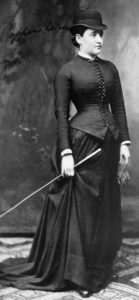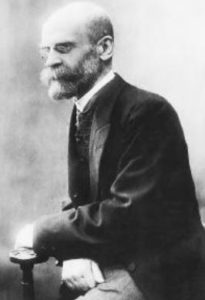A Jewish Heroine You Should Know About

Bertha Pappenheim
Bertha Pappenheim (1859-1936) was born in Vienna to a wealthy and religious Jewish family of Austrian and German heritage. Her father was a cofounder of Vienna’s famous Schiff Shul, the city’s largest Orthodox synagogue (later destroyed during Kristallnacht). At 16, she left school to take care of her home and her ill father. Around this time, she started developing psychological and emotional issues and was treated by the Austrian physician Josef Breuer, together with his student Sigmund Freud. Her case (known as “Anna O”) would play an important role in the development of psychology and psychoanalysis. After Pappenheim recovered, she moved with her mother to Frankfurt and the two became big patrons of the arts and science in the city. They helped found Frankfurt University, and built a reputation as generous philanthropists. Pappenheim intensified her studies, started writing, and became involved in politics. She volunteered at a soup kitchen and at a Jewish orphanage. She eventually became director of the orphanage and transformed it into a place where Jewish girls could learn real skills and become independent. Pappenheim wrote extensively on women’s rights and worked diligently to combat the trafficking of women. She founded the Jewish Women’s Association (Jüdischer Frauenbund, or JFB) which quickly grew to some 50,000 members and became the largest Jewish charity organization in the world. Pappenheim also founded numerous kindergartens, orphanages, and refuges for women who had been trafficked or abused. These institutions were strictly kosher and Shabbat-observant, providing warm care, education, vocational training, and religious instruction. Pappenheim collaborated with (former Jews of the Week) Henrietta Szold, founder of Hadassah, and Sarah Schenirer, pioneer of the Beit Yakov movement of girls schools. She wrote several plays, books of poetry, novella, and children’s stories. She also translated parts of the Talmud, Midrash, and Tanakh for women, along with a handful of other important texts. In 1954, Germany issued a postage stamp featuring Pappenheim in their “Benefactors of Mankind” series.
Words of the Week
Oftentimes a man believes he ought to be a leader because he desires to benefit his fellows; this is untrue. He is in reality seeking self-honour, and hides his true intention under a mask of kindness.
– Rabbi Nachman of Breslov (1772-1810)


